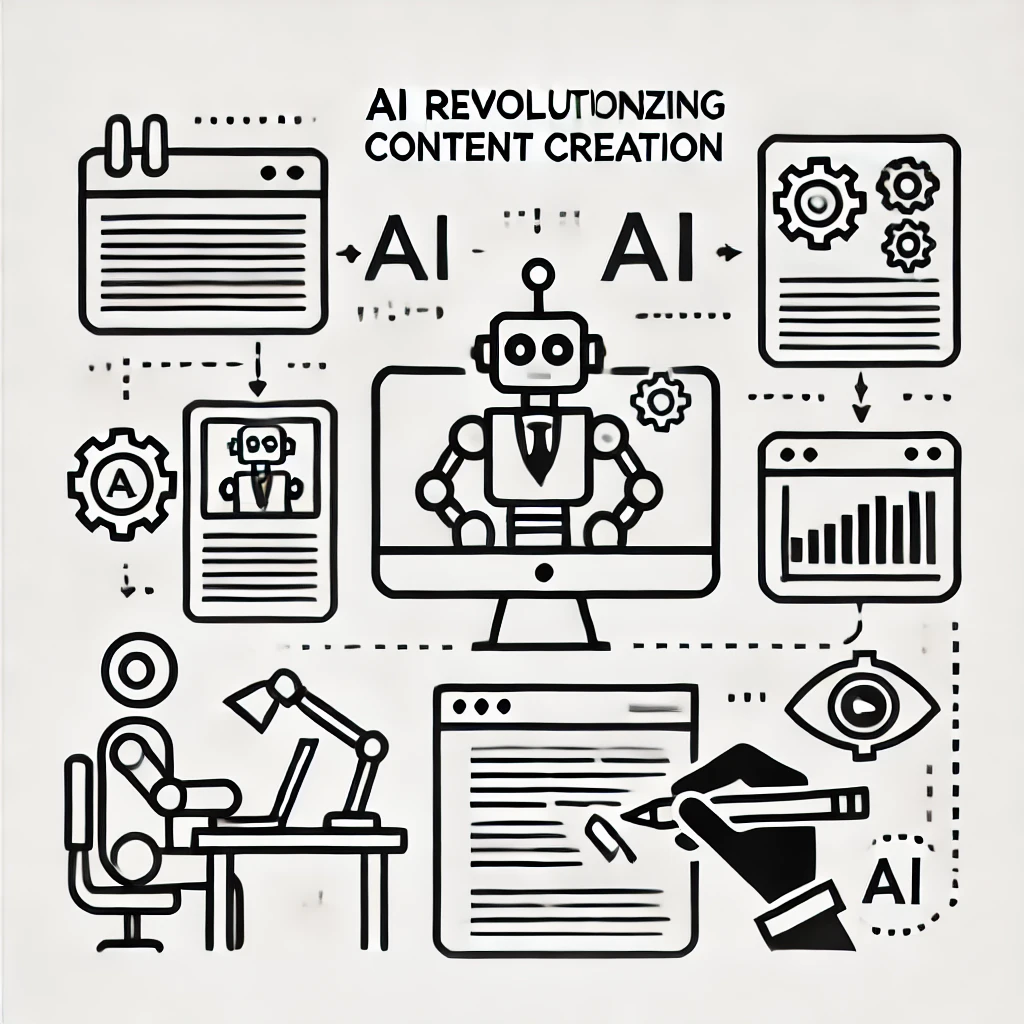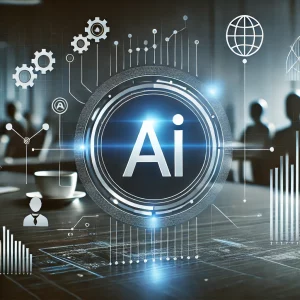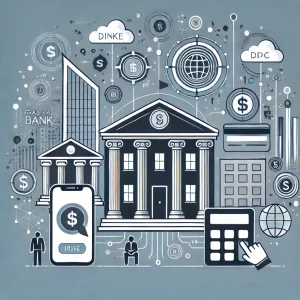How AI is Revolutionizing Content Creation

How AI is Revolutionizing Content Creation
Artificial intelligence (AI) is rapidly transforming the world of content creation, making it easier, faster, and more efficient to produce various types of content. From written articles to videos, images, and music, AI-driven tools are empowering creators, marketers, and businesses to streamline the creative process and produce high-quality content at scale. As AI technology continues to advance, its impact on content creation is becoming more profound, enabling new possibilities and transforming traditional workflows.
This article explores the key ways AI is revolutionizing content creation, the benefits it offers, and the challenges that come with integrating AI into the creative process.
1. Automated Content Generation
One of the most significant ways AI is transforming content creation is through automated content generation. AI-powered tools, such as GPT-3, can generate written content on a variety of topics, including blog posts, social media captions, and product descriptions. By analyzing existing content and learning from large datasets, AI can produce human-like text that requires minimal editing.
Automated content generation allows businesses and content creators to scale their output quickly, meeting the increasing demand for fresh content in digital marketing, news, and social media. For example, AI can assist in creating weekly blog articles for a company’s website or generating personalized email newsletters for customers.
Benefits of Automated Content Generation:
- Time Savings: AI can create content quickly, allowing writers to focus on higher-level tasks such as strategy and editing.
- Cost Efficiency: Automated tools can reduce the need for large content teams or freelancers, leading to lower production costs.
- Scalability: AI makes it possible to produce content in bulk, which is valuable for companies with high content demands.
2. AI-Enhanced Writing Assistance
Beyond generating content, AI also serves as a writing assistant, providing suggestions and improvements for human-written text. Tools like Grammarly and Hemingway Editor use AI algorithms to detect grammar errors, suggest style improvements, and provide readability scores. These AI-driven writing tools help writers create more polished, error-free content.
In addition to correcting grammar, some AI tools offer suggestions for optimizing content for search engines (SEO), making the content more discoverable online. By analyzing keywords, AI can recommend changes to improve a piece’s search ranking, leading to increased traffic and visibility.
3. AI-Driven Video and Image Creation
AI’s impact on content creation extends beyond text to include video and image generation. AI-powered tools like DeepArt and RunwayML enable creators to generate realistic images, enhance photos, and even animate videos using machine learning techniques. These tools can automate processes such as background removal, color correction, and video editing, making it easier for creators to produce visually stunning content.
For instance, AI can assist in video production by automatically cutting scenes, adding transitions, and synchronizing audio. This reduces the amount of time and effort required for video editing, allowing creators to focus on storytelling and creativity.
AI is also being used to create entirely new types of content, such as deepfake videos or AI-generated art. While these technologies raise ethical questions, they showcase the potential of AI in generating high-quality visual content.
4. Personalized Content Recommendations
AI plays a crucial role in delivering personalized content to users based on their preferences and behavior. Platforms like YouTube, Netflix, and Spotify use AI algorithms to analyze user data and recommend videos, shows, or songs that match their interests. These algorithms take into account factors such as past viewing history, search queries, and engagement to curate content that users are more likely to enjoy.
Personalized content recommendations improve user engagement, as people are more likely to consume content that is relevant to them. For content creators and marketers, this means higher visibility and a greater opportunity to reach their target audience.
5. Content Optimization and SEO
AI is also transforming how content is optimized for search engines. AI-driven SEO tools like Surfer SEO and MarketMuse analyze content to provide recommendations on improving keyword usage, structure, and readability. These tools can analyze competitors’ content, identify gaps, and suggest ways to enhance content to rank higher in search engine results.
By using AI for content optimization, creators can ensure that their content is more likely to appear in front of their target audience, driving more traffic to their websites and increasing conversions.
6. AI-Generated Music and Audio Content
AI is reshaping the music industry by enabling the creation of AI-generated music and audio content. Tools like Amper Music and AIVA can compose original music tracks based on specific parameters, such as genre, mood, and tempo. This technology is useful for creators who need background music for videos, podcasts, or presentations but may not have the resources to hire a composer.
AI-generated music can also be customized to fit a brand’s identity, providing a unique sound that aligns with the company’s image. Additionally, AI tools can assist in audio editing by automatically removing background noise or adjusting audio levels, making it easier for creators to produce high-quality audio content.
7. Streamlined Content Curation
Content curation involves finding and sharing relevant content with an audience, and AI can simplify this process by automatically identifying and suggesting content based on a creator’s niche or industry. AI-driven curation tools like Feedly and Curata can analyze large volumes of content, filter out irrelevant information, and present the most valuable content for sharing.
Streamlined content curation helps content marketers maintain a steady flow of engaging material for their audience without spending excessive time searching for quality content.
Challenges and Considerations
While AI offers significant benefits for content creation, there are challenges and ethical considerations that need to be addressed:
- Quality Control: Although AI-generated content can be useful, it may lack the creativity, nuance, or emotional depth that human writers can provide. Human editing is often required to ensure that the content meets quality standards.
- Copyright Issues: Using AI-generated content, especially images and music, raises questions about copyright and intellectual property. Clear guidelines and policies are needed to protect creators’ rights.
- Bias in AI Algorithms: AI systems can reflect biases present in the data they are trained on. It is important to ensure that AI-generated content does not perpetuate harmful stereotypes or misinformation.
- Ethical Concerns with Deepfakes: While deepfake technology can be used for creative purposes, it also poses risks, such as spreading false information or impersonating individuals. Regulations may be necessary to prevent misuse.
The Future of AI in Content Creation
The future of content creation is likely to see a greater integration of AI, with more advanced tools capable of generating highly creative and complex content. As AI algorithms become more sophisticated, they will be able to mimic human creativity more closely, potentially transforming industries like journalism, entertainment, and marketing.
Additionally, AI and human collaboration will become more common, where AI handles repetitive tasks, and human creators focus on higher-level creativity. This collaboration will enable content creators to produce more engaging and innovative content while maintaining quality and authenticity.
Conclusion
AI is revolutionizing content creation by automating processes, enhancing creativity, and making it easier for creators to scale their efforts. From writing assistance and video editing to personalized content recommendations and AI-generated music, AI is reshaping the way content is produced and consumed.
However, as AI continues to advance, it is important to navigate the ethical challenges and ensure that human oversight remains a key component of the creative process. The future of content creation will be shaped by how well we can leverage AI’s capabilities while preserving the authenticity and uniqueness of human expression.





